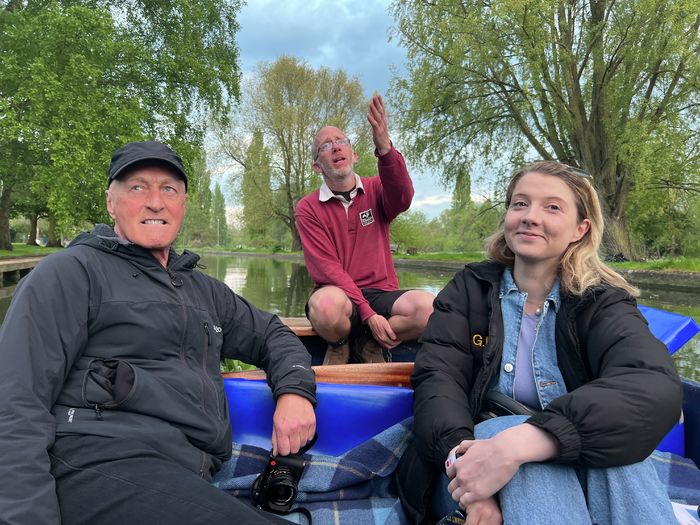Are you in love with Notion? Notes on how my love of the notes app took over my life
Michael Burchardt reflects on how Notion began to structure his life and friendships too rigorously

Having missed more than a few lectures, written panicky emails to my DoS, rescheduled the same supervision several times within a week and become convinced that I wasn’t going to make it through my first term as an undergraduate at Cambridge, I decided that a change was in order.
“The magical power of Notion had changed my life”
Jealousy and wonder at the students who did seem to have their lives sorted out and were handing in their work on time (AKA the students who I frantically asked for notes) quickly became associated with the word Notion. Connecting this mysterious piece of software with my unfazed and coolly relaxed peers who breezed through supervisions and language classes, a mystical reverence began to develop in me for this missing piece of the puzzle. The word was soon adopted into my vocabulary (and downloaded onto my laptop), alongside the now-omnipresent terms such as “supo”, “hall”, and “JCR” as I struggled into the third week of Michaelmas.
In starting to use Notion and finally being able to see this seemingly unbelievable list of assignments all in one place, I began to opt out of social events and stay on later in the library, citing work as an excuse. This was good; finally in control of my week, I knew what I had to do to stay afloat, and the decision to spend more time in the library was not simply to do with stress. Rather, it reflected an increasing commitment to myself and my own wellbeing.
“Promising only a slippery slope to the chasm of hopelessness”
I had not been mistaken – the magical power of Notion had changed my life, and its control over me grew and grew as I began to use it for an ever wider variety of things. By week six, my Notion dashboard consisted not only of my reading list, assignments and deadlines, but also my plans for the week, what films I wanted to watch, as well as my budget for the term.
I had become infamous amongst my mates after they discovered a “friends list” on my Notion with notes on my next plans with each of them, as well as what I thought I had to do to put enough effort into each friendship. While this may have seemed psychopathic to them, it appeared to me simply as the natural progression from Notion’s complete and successful restructuring of my work life.
Under the control of Notion’s rigid, deadline-based structure, I became obsessed with handing in my work on time, beginning to stay up long into the morning or even all night to hand in my essays on time rather than asking for an extension during essay crises. On not one of these occasions did I act as though I had a choice; a return to the chaos of my pre-Notion days by missing a deadline was unthinkable and simply did not appear as an option, promising only a slippery slope back to the chasm of hopelessness and lack of control that I had barely pulled myself out of at the beginning of the term. Slowly but surely this lifestyle began to weigh me down, but it was only during the much-needed break of the holidays that the question of what I was actually doing it all for arose in my mind. I faced the realisation that a deadline is only a deadline, and not, despite the word’s ominous implications, a matter of life and death.
The rigid, deadline-based structure of Notion which I attempted to apply to my life in my first Michaelmas term does not come from nowhere; perhaps it is the tool most tuned to the particular demands of a Cambridge tripos, and it was never really Notion itself which took over my life but the Cambridge workload and the lack of freedom (whether in relation to your interests, hobbies, friendships or anything else) which it entails.
The only important question to ask is whether there is any alternative if we want to graduate with our precious degrees, and how to respond when we realise that our lives are all being taken over and dominated by an external entity. For me, I’m still using Notion, but missing a deadline or only finishing half of my reading list isn’t such a cause for concern; and the friend list is long gone, happily replaced by real human interaction. There isn’t much to be said on the subject except that we often lose touch with the fact that education, much like Notion itself, is intended to be to our benefit and a conscious choice, not something to which we are beholden.
 Comment / Plastic pubs: the problem with Cambridge alehouses 5 January 2026
Comment / Plastic pubs: the problem with Cambridge alehouses 5 January 2026 News / Cambridge academics stand out in King’s 2026 Honours List2 January 2026
News / Cambridge academics stand out in King’s 2026 Honours List2 January 2026 News / Cambridge businesses concerned infrastructure delays will hurt growth5 January 2026
News / Cambridge businesses concerned infrastructure delays will hurt growth5 January 2026 News / AstraZeneca sues for £32 million over faulty construction at Cambridge Campus31 December 2025
News / AstraZeneca sues for £32 million over faulty construction at Cambridge Campus31 December 2025 Interviews / You don’t need to peak at Cambridge, says Robin Harding31 December 2025
Interviews / You don’t need to peak at Cambridge, says Robin Harding31 December 2025









